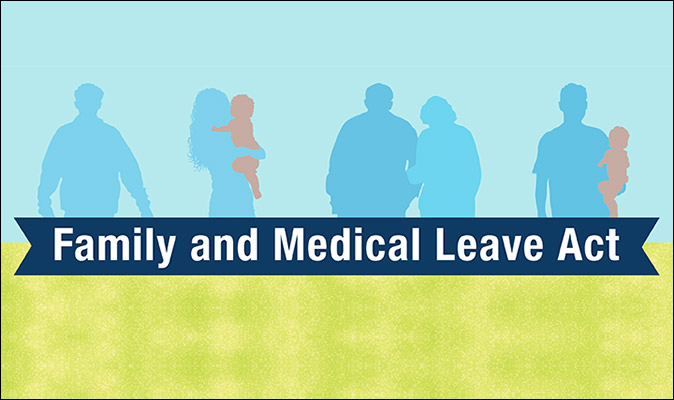
Fear of getting fired at work is a common concern for people considering addiction treatment, so it’s important to understand how to go to rehab and keep your job.
Just because a person struggles with addiction, it doesn’t mean that he or she is not part of the workforce.
The fact is, one in 10 Americans is addicted to some form of drug or alcohol, yet only about 11% of people get treatment for addiction according to the Partnership to End Addiction.
Every person is different, and there are countless reasons why so many never get the help they need for recovery. One of the most common excuses for avoiding rehab is the fear of losing a job.
Whether it is justified or not, it is a very real fear shared by many people.
To help understand how to go to rehab treatment and keep your job, the answers below will provide some insight and hopefully alleviate any worries about getting necessary treatment for addiction.
Can I Lose My Job If I Go To Addiction Rehab?
Let’s first address the elephant in the room – can I lose my job for going to rehab? In one word – Yes… you can!
That might not seem reasonable, but it’s possible, and it’s important to be aware of that fact.
Thankfully many employers are supportive, and there are ways to get around it if not.
What Can Your Boss Ask When You Call In Sick?
Taking a day or two off for health reasons is normally considered acceptable. But what happens when you need to take a few months off from work to attend to your recovery?
Your employer will most likely ask you what is wrong, and there is no limit to what they might ask you.
It’s best to keep your answer brief, because there is no law about the type of questions that your boss may ask you. Most managers will respect your privacy, but this isn’t always the case.
An exception to this rule applies for those who are covered by the Americans with Disabilities Act of 1990 (ADA). This law is designed to provide equal opportunities for people with disabilities.
Who is Covered By The Americans With Disabilities Act (ADA)?
If you have a recognized mental or physical impairment that limits one or more major life activities, the Americans with Disabilities Act (ADA) might cover you.
This could be (but is not limited to) having trouble seeing, hearing, eating, sleeping, speaking, breathing, learning, or thinking, although the disability must have a duration of 6 months or more. A full outline of the ADA is available online.
Many people struggling with a substance use disorder also have a co-occurring mental health issue requiring dual diagnosis rehab treatment. So it pays to check if you’re covered by the ADA.
Here are some mental and physical impairments that the ADA covers:
- Epilepsy
- Cerebral palsy
- Intellectual disability
- Muscular dystrophy
- Orthopedic, speech, and hearing impairments
- Visual impairments
- Heart disease
- Drug addiction
- HIV
- Learning disabilities
- Diabetes
If you need time off and have an ADA-protected condition, you don’t need to go into the full details about your problem. However, your employer will most likely request a doctor’s note.
How Do I Tell My Work I’m Going Into Rehab?
Requesting days off for mental health reasons is normally preceded by an awkward conversation with your manager.
It’s not surprising that many people freeze at the very thought of talking about mental health with work colleagues. The stigma alone can lead to uncomfortable situations that most of us would rather avoid.
Do you have annual leave or unpaid leave?
If so, you can use the leave time accrued to go into treatment. It is sometimes better to get into recovery first, and share your story afterwards.
If you can take paid or unpaid leave, then you can go into rehab discreetly.
You are under no obligation to share the details of your illness with your boss. However, people often want to disclose the life they had been living, so that they’re no longer living a lie.
Addiction treatment programs for professionals offer discreet and confidential services that are protected by HIPAA regulations. This means they will not tell your employer about your treatment.
Nominate Your Therapist to Communicate on Your Behalf
If you’re not comfortable speaking with your boss or loved ones about your addiction and treatment, you can nominate your therapist to communicate for you on your behalf.
Rather than putting on another front, it can be good to allow your therapist to tell your employer or loved ones that you are in rehab.
In addition to relieving you of the burden, it will also validate your health issues when coming from a professional who specializes in your condition.
That being said, there is no “one way fits all.” Some employers are not supportive of taking time off for rehabilitation treatment. Your own approach will be unique to your individual path of recovery.
Mental Health Issues and Addiction Can Be Isolating
The stigma surrounding mental health issues can lead to a cascade of lies. You might lie to cover up the extent of your substance use. You might even lie to yourself that you don’t have a problem.
When it comes to explaining your disease, it can be intimidating and disheartening to own up to it, not just to yourself, but also to others.
Take comfort in being honest and for taking responsibility to get healthy and improve your life.
It’s important to remember that you can always rebuild your life. Taking steps toward your recovery will allow you to reconnect with yourself and a thriving life of sobriety. Ditch the shame and take steps toward living a full and healthy life.
Despite the stigma surrounding mental health issues, many employers now see the benefits of having a happy, healthy workforce.
The World Health Organization (WHO) estimates that every $1 put into treatment for mental health disorders yields a 4-fold return in productivity.
While it’s in the best interest of your employer to assist you in getting appropriate treatment for mental health or substance abuse issues, many employers are lagging behind the times and still adhere to old-fashioned values.
Fortunately, that is slowly changing in a positive way.
How to Go to Rehab and Keep Your Job With a Company Employee Assistance Program (EAP)
When choosing an employer, it pays to review their Employee Assistance Program (EAP), which will outline their corporate wellness programs.
Many companies today understand the benefit of providing “mental health days” and wellness programs.
If you have an understanding employer, then asking for leave to go to rehab will be much easier.

How to Go to Rehab and Keep Your Job by Using the Family and Medical Leave Act (FMLA)
Before we dive into the Family and Medical Leave Act (FMLA), it’s important to note that it doesn’t cover contract workers.
The Family and Medical Leave Act of 1993 (FMLA) covers your leave for up to 12 weeks in any 12-month period for medical or family reasons.
Unfortunately not everyone is covered by the FMLA.
FMLA covered employers usually include:
- State employers
- Local government employers
- Federal employers
- Some larger private companies
To use the Family and Medical Leave Act to go to rehab, you’ll need to work for an FMLA covered employer, and have worked for them for at least 12 months.
Under most circumstances, the Family and Medical Leave Act applies to unpaid leave and essentially ensures that you can keep your job. Check with the human resources department to see if your employer is covered by the FMLA.
If you’re going into rehab and your employer recognizes the FMLA, it can be beneficial to let them know your plans. If you don’t advise them of your plans ahead of time, you may no longer be protected and could be asked to leave.
According to the U.S. Department of Labor, if you’re covered by the Family and Medical Leave Act, you shouldn’t be fired for going into rehab, provided you give enough notice ahead of time.
An exception to this rule is if your employer has a separate policy that states otherwise. So check your company’s policies first before deciding the best route to take.
The U.S. Department of Labor states:
“FMLA leave may only be taken for substance abuse treatment provided by a health care provider or by a provider of health care services on referral by a health care provider. Absence because of the employee’s use of the substance, rather than for treatment, does not qualify for FMLA leave.”
How to Go to Rehab and Keep Your Job by Getting Time Off Work
If your employer offers annual paid or unpaid leave, that’s normally the easiest route to getting time off work to go to a rehab treatment program. That way you don’t have to tell anyone, and can complete a rehab treatment program before deciding if you want to discuss your recovery at work.
Employers covered by the FMLA will provide up to 12 weeks of unpaid leave, which can secure your job while you get treatment.
Employers vary widely on their understanding of mental illness and substance addiction. Therefore your approach may differ from others on the path to recovery.
It’s invaluable to be fully informed about your employer’s policies, and speak with your therapist before deciding on the best path to recovery.
If you’re still unsure about how to go to rehab and keep your job, contact us with any questions you have and we can discuss possible options.
Related Posts
- 12 Things To Do After Rehab for Addiction Treatment
Most people who complete an addiction treatment program agree it can be difficult, but ultimately…
- Evidence-Based Treatment for Addiction
For anyone seeking treatment for addiction and mental health issues, it can be difficult and…
- 10 Questions to Ask When Searching for Addiction Rehab
Searching for the perfect addiction rehab can be overwhelming for most people. Whether you're searching for…
